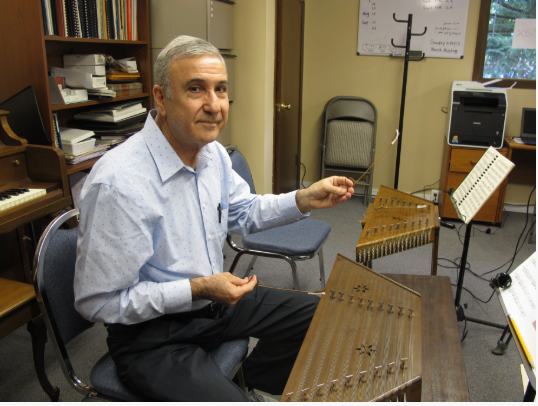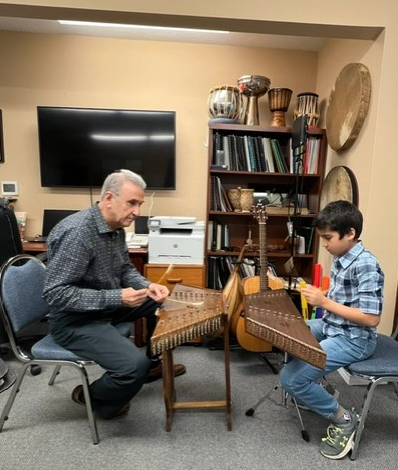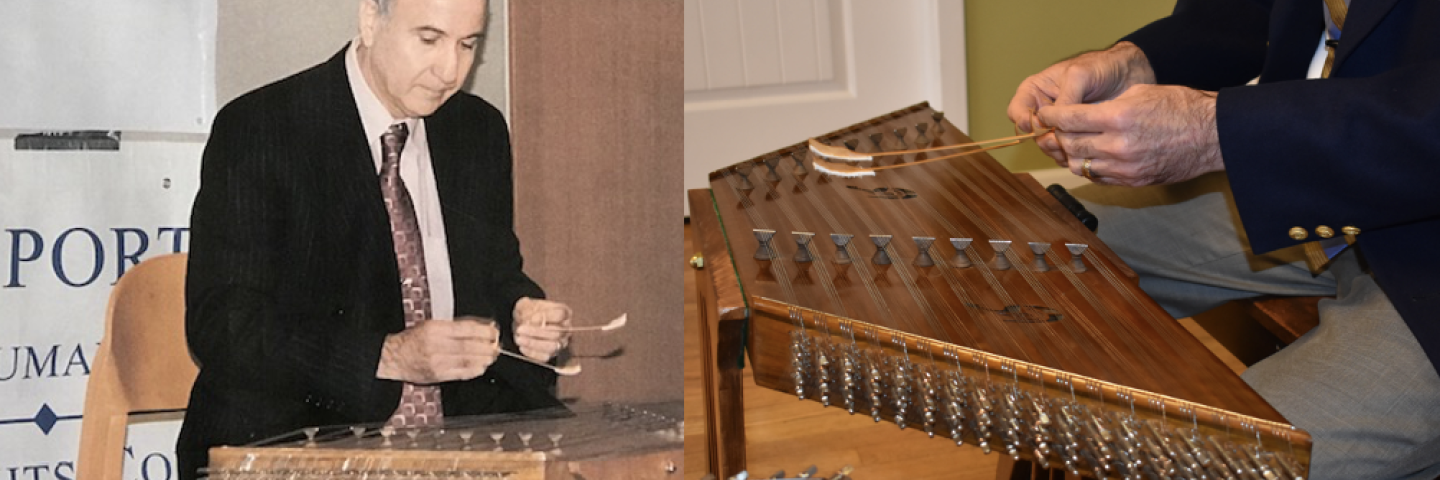ARTIST BIOGRAPHY
 | Traditional Skill/Art: Santoor Music, Traditional Persian Music Years Won: 2016, 2019, 2021, 2025 Contact Information: Phone: 503-347-8718 Email: hossein.salehi@comcast.net |
Salehi’s family migrated to the United States in 1987. He was unable to bring his Santoor instrument and purchasing one here in Oregon was not an option; it simply did not exist. Homesick, and with the help of a friend with a talent for woodworking, Salehi built his first Santoor. He was invited to present an advanced applied music course at PSU for two years 2012 and 2013 where he passed on his unique techniques to one of his highest quality students, Monica Rabii. She was the very first graduate from PSU with a bachelor’s degree on special instrument "Santoor." This unprecedented event was the utmost fulfilling event in Salehi’s artistic life.
Salehi has received the Traditional Arts Apprenticeship Program award in 2016, 2019, 2021, and 2025. His apprentices in the TAAP program have included (in chronological order): Amitis Moradkhani, Alireza Talebannejad, Noveen Eshraghi, and now Baenjamin Malihi.
APPRENTICE BIOGRAPHY
 | Benjamin Malihi Traditional Skill/Art: Santoor Music, Traditional Persian Music Years Won: 2025
|
Benjamin is an 8-year-old Iranian American third grade student. Born to immigrant parents from Iran in 2016 in Portland, Oregon, he has been raised bi-lingual English / Persian (Farsi) by parents and grandparents who also later migrated from Iran. Benjamin is very interested in learning and understanding his rich Iranian heritage language and art and also regards Santoor as a means of better connection to his family elders who are enthusiastic supporters of his journey in Persian music.
Q&A WITH THE MENTOR ARTIST
Traditional Santoor playing is a very common in Persian culture and has been used in traditional Persian music for over 1,100 years. This form of music is played very commonly in ceremonies, celebrations, national holidays, and more. All formal and historical Persian celebrations have their own melodies, along with their own related lyrics; it is very important to keep this tradition alive and pass it onto next generations.
I am fortunate enough to have learned this unique instrument since my childhood and continued developing my skills during the last 61 years of my life. My whole purpose was to train more people familiar with this unique form of Persian instrument in order to keep it alive. Students with Persian background will feel more confident by accessing their traditional cultural aspects.
This type of instrument was unknown in Oregon and throughout the United States, and fellow Iranians/Americans did not have access to their heritage. I committed myself to creating opportunities for others to learn this art form in Oregon and in even in other states. My small, private lessons soon led to large annual recitals, local performances, and to my delight, former students who are now teachers.
In 1993 I was awarded as a Persian Master Artists by the Oregon Historical Society
In 2002 I was recognized as a Master Artist in Persian Music by the Andisheh Center
In 2005 I was interviewed by and featured in Oregon Art Beat by Oregon Public Broadcasting
Since 2006 I have taught at annual seminars of Dulcimer Players of the United States and presented santoor and traditional Persian music.
Since 2009, I've been actively teaching at ArtMax Academy, a non-
profit music and art school, where I’ve been able to mentor many students and help them develop their skills.
During the pandemic, I adapted to online teaching via Zoom and Skype, ensuring that the learning process continued uninterrupted. This experience has allowed me to connect with students from different locations, keeping the tradition alive despite the challenges.
Salehi has received the Traditional Arts Apprenticeship Program award in 2016, 2019, 2021, and 2025. His apprentices in the TAAP program have included (in chronological order): Amitis Moradkhani, Alireza Talebannejad, Noveen Eshraghi, and now Baenjamin Malihi.
Visit OFN's Culture Keepers Roster to learn more about the artist.
Traditional Arts Apprenticeship Program
More OFN programs
OFN main page
